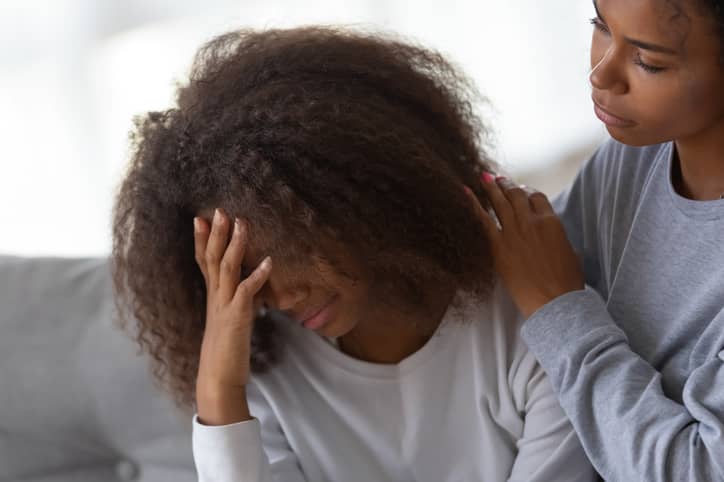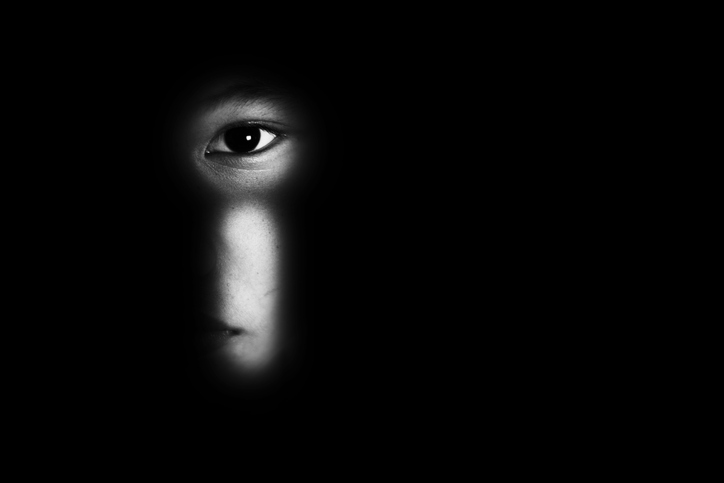What is FGM?
Female genital mutilation (FGM) is when a girl or woman’s genitals are cut, changed, injured or removed and there’s no medical reason.
Sometimes called female circumcision or female genital cutting, it’s most commonly done on girls between the age of 0 and 15.
FGM is very painful and has no known benefits. Instead, it often causes serious, long-lasting damage to a girl or woman’s physical and emotional health. As well as being a form of violence and child abuse, it goes against basic human rights. And it’s illegal in most countries.
Whether you’re affected by FGM or you’re worried about someone else, it’s important to know the facts, and that help and support is available. So read on to get the lowdown, including what the law says, where and why FGM happens, and what the health risk are – plus what to do if you or someone you know is at risk.
What does the law say about FGM in UK and US?
FGM is illegal in the UK. It’s a criminal offence to:
- perform FGM – this includes taking a child to another country for FGM, whether or not it’s lawful in that country
- help or encourage anyone to perform FGM in the UK
- help or encourage someone to perform FGM on herself in or outside the UK
- help, encourage, advise or arrange anyone to carry out FGM outside the UK on a UK national or resident, whether or not it’s lawful in that country
- fail to protect a girl under 16 in your care from FGM
Anyone found guilty of performing FGM in the UK can get up to 14 years in prison, while anyone failing to protect a girl from FGM can get up to 7 years.
In the US, FGM is illegal on someone under the age of 18 (a minor). It’s an offence to:
- perform FGM on someone under 18
- attempt or conspire to perform FGM on someone under 18
- take someone who’s under 18 abroad to have FGM
- consent to FGM on someone under 18 when you’re their parent, guardian or caretaker
Anyone found guilty of these offences can face up to 10 years in prison.
How common is FGM in the UK, US and other countries?
FGM happens all over the world, and women and girls born in the UK or US may still be at risk.
They may be more at risk if they’re taken to other countries. In the UK, for example, girls are sometimes flown abroad for FGM under the pretence of visiting friends and family during the school summer holidays – sometimes known as ‘cutting season’.
Statistics on FGM in the UK, US and worldwide:
- in the UK, an estimated 137,000 women and girls have had FGM – and research suggests that about 60,000 girls under 15 are at risk
- in the US, research suggests that about 513,000 girls and women have either already had FGM or are at risk
- worldwide, it’s estimated that over 200 million girls and women have had FGM. And it’s thought that at least 3 million girls and women are at risk every year
FGM is carried out in certain communities in more than 30 countries in Africa and the Middle East, as well as some countries in Asia and South America.
In some countries, it’s very common – in Egypt, Guinea, Mali and Djibouti, it’s estimated that at least 90% of women aged 15 to 49 have had FGM.
In the UK and the US, it’s thought that girls and women with connections to communities from these countries may be more at risk of FGM:
- Egypt
- Eritrea
- Ethiopia
- Gambia
- Guinea
- Indonesia
- Ivory Coast
- Kenya
- Liberia
- Malaysia
- Mali
- Nigeria
- Sierra Leone
- Somalia
- Sudan
- Yemen
Girls are also likely to be more at risk if their mother, sister or another family member has had FGM.
Why is FGM performed?
There are no acceptable reasons for FGM, and it’s often done against a girl or woman’s wishes.
The reasons behind FGM vary from one community to another, and can involve cultural, social and religious factors:
- it’s often a deeply held tradition, in places where inequality and discrimination against girls and women is common
- it can be motivated by mistaken beliefs about social acceptance, hygiene or religion – although there are no religious texts that say it should be done
- it’s sometimes seen as a rite of passage into adulthood – and even considered a precondition for marriage, preserving a girl or woman’s virginity
- it can be rooted in a desire to control a woman’s body and sexuality
What are the types of FGM and how is it done?
FGM is often done by elders in a community – usually women – or traditional circumcisers with no medical training. Sometimes it’s done by a traditional health practitioner, herbalist, or even a barber or female relative.
It’s generally done without using numbing medicines (anaesthetics) or antiseptics. In some countries, it’s increasingly done by healthcare professionals, sometimes with the idea of making it ‘safe’. But this can still cause trauma and serious harm.
There are 4 types of FGM:
- type 1 – removing part or all of the clitoris, including the visible and most sensitive part (glans) and the fold of skin that protects it (hood). This is known as a clitoridectomy
- type 2 – removing part or all of the clitoris and the inner lips that surround the vagina (labia minora), and sometimes the vagina’s outer lips (labia majora). This is known as excision
- type 3 – narrowing of the vaginal opening by creating a seal, which is formed by cutting and repositioning the labia. Sometimes involves removal of the clitoris. This is known as infibulation
- type 4 – any other procedure that causes harm to the genitals for non-medical purposes, including cutting, scraping, burning, pricking or piercing
What are the health problems associated with FGM?
FGM isn’t only distressing and painful – it also has many health risks.
When it’s done, there’s an immediate risk of:
- severe pain
- heavy bleeding (haemorrhage)
- shock
- fever
- infections, such as tetanus
- problems with wound healing
- injury to the surrounding tissues
- peeing (urinary) problems
In some cases, complications such as heavy blood loss or infection can lead to death.
After it’s done, FGM often leads to long-term problems, including:
- vaginal itching, discharge and frequent infections, such as bacterial vaginosis (BV)
- painful periods and difficulty passing period blood
- painful sex and reduced sexual enjoyment
- urinary problems, such as pain when peeing and urinary tract infections (UTIs)
- excessive scar tissue
- complications during labour and childbirth, which can be life-threatening
- mental health problems, including anxiety, low self-esteem, depression, self-harm and post-traumatic stress disorder (PTSD)

If you’re dealing with physical or mental health problems after FGM, there is support available, and it’s important to get the help you need (see below).
As an adult, any medical care or support you have will be private (confidential). If a child is potentially at risk, however, remember that professionals will need to take action to help keep them safe.
Getting help and support for FGM
All girls and women have the right to make decisions about their bodies – and have the right to say no to FGM. If you, or someone you know, is at risk of FGM or has been affected, there’s help and support available.
Here’s how you can get help and support in the UK:
- if someone is in danger of FGM now – call the police immediately by dialling 999
- if someone has been taken out of the country for FGM – contact the Foreign and Commonwealth Office on 020 7008 1500
- if you’re worried that a child is at risk of or has already had FGM – contact the NSPCC helpline on 0800 028 3550 or email fgmhelp@nspcc.org.uk
- if you’re being pressured to have FGM done on your daughter – contact the NSPCC helpline or ask your doctor, health visitor or another healthcare professional for help
- if you’ve had FGM – speak to your doctor or another healthcare professional to find out what help is available for you. There are community-based National FGM Support Clinics (NFGMSCs), which offer various types of support, including information and access to counselling and treatment
- if you’re looking for local support – you can access help and advice from your local council by asking for the Safeguarding Children Board, or you can search what’s available in your area using your postcode
- if you need more support and advice – The Foundation for Women’s Health Research and Development (FORWARD) offers information, advice and 1-to-1 support. Call 020 8960 4000 or 07834 168 141, or email support@forwarduk.org.uk. You can also call Refuge’s free, 24-hour National Domestic Abuse Helpline on 0808 2000 247, or try its live chat service. Or call the Muslim Women’s Network helpline on 0800 999 5786
Getting help and support in the US:
- if you’re at risk of or have had FGM, have information about someone who is performing FGM, or know of someone who may be at risk of FGM in the US or elswhere – call TIP LINE: 1-866-347-2423 (from the US or Canada) or email HRV.ICE@ice.dhs.gov; or call the National Child Abuse Hotline on 1-800-4-A-Child
- if you need help, support or advice – The Global Woman P.E.A.C.E. Foundation is a charitable organisation that supports the psychological, physical and emotional rehabilitation of survivors of FGM. The support group meets monthly online. If you’re interested in participating, you can email info@globalwomanpeacefoundation.org

Can FGM be treated?
In the UK, the National FGM Support Clinics can help you access a physical assessment and treatment for FGM. The all-female team can also refer you to a specialist consultant, if needed.
The treatment you might need or find helpful will depend on your symptoms, and you may have complications that need specific treatments. But the 2 main treatment options for FGM are surgery and psychological therapy:
Deinfibulation surgery
Surgery called deinfibulation can be done to open up your vagina. It’s a minor operation that involves making a cut to divide any scar tissue that’s covering the entrance to your vagina.
While it can’t undo the damage caused by FGM, it can help with some of the complications. It may be recommended if FGM means you:
have difficulty peeing or having sex
are at risk of problems during pregnancy, labour or a vaginal delivery
Psychological therapy
FGM can be a very traumatic experience. If you’ve been affected, your doctor or the National FGM Support Clinics can help you access mental health services, including counselling and psychiatric support.
If you have anxiety, depression or PTSD, you may be offered cognitive behavioural therapy (CBT). This is a type of talking therapy that focuses on how your beliefs and thoughts affect your actions and feelings, and can help you manage problems by teaching you coping skills.

Your health questions answered
I’m a teacher/doctor. What should I do if I think a child is at risk of FGM?
“In the UK, if you think a child is at risk of FGM, you must make a referral to Children’s Social Care immediately using your local Safeguarding Board procedures. (If someone is in immediate danger of FGM, call 999.) Health and social care professionals and teachers in England and Wales have a mandatory duty to report to the police any known cases where FGM has taken place on someone under 18. If the person is 18 or older, you should follow local safeguarding procedures.”





